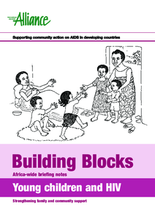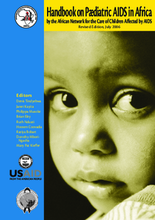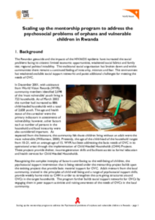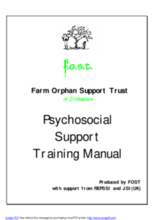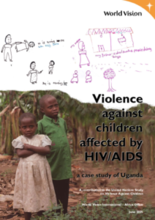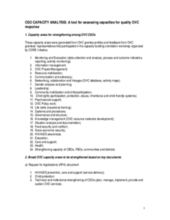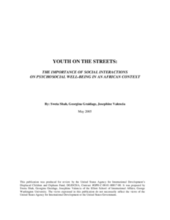Displaying 471 - 480 of 509
Practical guidance on dealing with young children in the context of HIV/AIDS. Focuses on the developmental needs of children affected by HIV/AIDS. Also focuses on care and treatment provision for children who are HIV-positive.
A practical resource handbook for health professionals. Topics covered include HIV epidemiology, preventing HIV infection, care of HIV-exposed or HIV-infected children, diagnosis and clinical staging of HIV infection, clinical conditions associated with HIV, antiretroviral therapy, adolescent issues, long-term and terminal care planning for children affected by HIV/AIDS and their families, counseling and psychosocial support, and nutrition.
Outlines the results of World Vision Rwanda’s mentorship program for children in child-headed households and other OVC. Includes challenges and lessons learned.
This manual aims to help trainers, OVC programme staff and volunteers refocus on the non-material support they offer to children and to demonstrate how this can be offered in a structured way.
Report documenting participatory research conducted on violence against children affected by HIV/AIDS in Uganda. Particular focus on the stigmatisation and discrimination.
Minimum standards for day care centers in Romania.
This document provides a tool that was used to assess broad capacity areas for quality OVC response in Uganda.
A resource pack for training caregivers of children who have been commercially sexually exploited. It includes 12 units to develop knowledge and practical skills of caregivers in areas such as child sexual abuse, commercial sexual exploitation, special and psychosocial needs, behavior management, health promotion, life and social skills, education and vocational training, communication and therapeutic skills, and rehabilitation.
Lists ethical “do’s and dont's” specific to Consultants/Advisors, Managers/Supervisors, and Field-Level Workers arranging and conducting Needs Assessments in disaster situations.
Research on the psychosocial factors contributing to distress of children living and working on the streets in Ethiopia. Highlights the importance of facilitating social relationships and connectedness. Suggests intervention constructs and measures based on the Psychosocial Child Well-being model.

